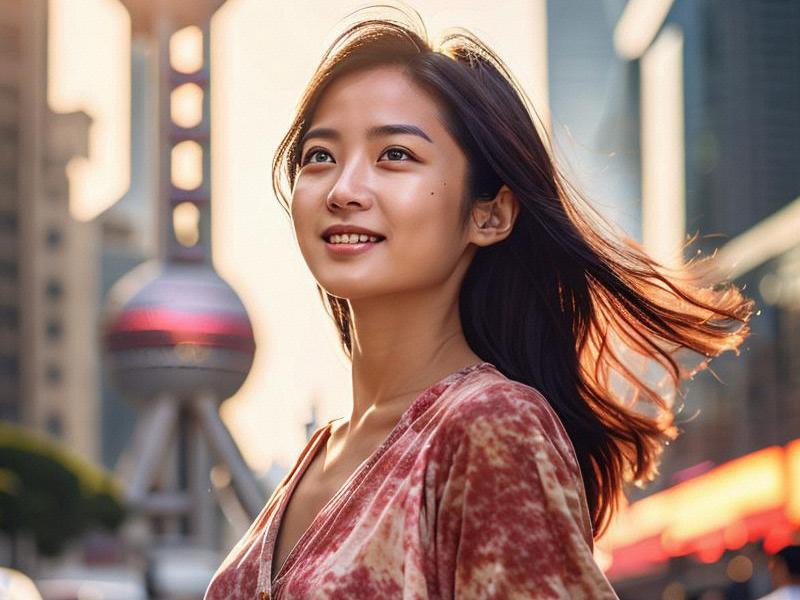This article explores how Shanghai is successfully merging its rich cultural heritage with the fast-paced modern lifestyle, creating a unique urban environment that attracts both locals and international residents. From traditional festivals to cutting-edge art galleries, Shanghai showcases the perfect balance of old and new.

In the heart of China's most cosmopolitan city, a fascinating cultural transformation is taking place. Shanghai, known for its dazzling skyline and status as a global financial hub, is simultaneously preserving and revitalizing its deep-rooted cultural traditions. This cultural renaissance is not just about maintaining the past; it's about creating a dynamic space where history and modernity coexist harmoniously.
The city's approach to cultural development is multifaceted. On one hand, there's a concerted effort to preserve and promote traditional arts and crafts that have been part of Shanghai's identity for centuries. On the other, there's an equally strong push to embrace contemporary cultural expressions that reflect the city's global outlook. This duality is what makes Shanghai's cultural scene so unique and vibrant.
One of the most visible aspects of this cultural blend is the proliferation of traditional festivals alongside modern cultural events. The annual Shanghai International Arts Festival, for instance, attracts world-class performers and artists while also featuring traditional Chinese opera and folk music performances. Similarly, the city's Lantern Festival celebrations incorporate ancient lighting traditions with modern light installations, creating a spectacle that appeals to all age groups.
The preservation of historical architecture is another key element of Shanghai's cultural strategy. The Bund, with its iconic colonial-era buildings, stands as a testament to the city's international past. These structures have been meticulously restored and now house high-end restaurants, art galleries, and boutique hotels, blending their historical significance with contemporary functionality. Meanwhile, neighborhoods like Xintiandi have successfully transformed old shikumen (stone gate) houses into trendy dining and shopping destinations, maintaining their architectural integrity while adapting them to modern needs.
爱上海同城419
Shanghai's art scene is thriving, with a mix of traditional and contemporary galleries. The China Art Museum, one of the largest in Asia, showcases both classical Chinese art and modern works by Chinese artists. At the same time, districts like M50 and West Bund have become hotspots for contemporary art, featuring works by both established and emerging artists. This vibrant art ecosystem provides a platform for creative expression while also attracting art enthusiasts from around the world.
The city's culinary landscape perfectly mirrors its cultural fusion. While traditional Shanghainese cuisine remains immensely popular, with dishes like xiaolongbao (soup dumplings) and sweet-and-sour spare ribs delighting locals and visitors alike, the city's food scene has also embraced international flavors. From Michelin-starred restaurants to trendy cafes serving fusion cuisine, Shanghai offers a gastronomic journey that reflects its cosmopolitan nature.
Education plays a crucial role in Shanghai's cultural development. The city boasts numerous institutions dedicated to the study and promotion of traditional arts, such as the Shanghai Conservatory of Music and the Shanghai Theatre Academy. These institutions not only preserve traditional forms but also encourage innovation, producing artists who can reinterpret classical forms in contemporary contexts.
上海私人外卖工作室联系方式
The expat community in Shanghai has also become an integral part of the city's cultural fabric. International schools, foreign-language bookstores, and cultural centers cater to the needs of the city's diverse population. Cultural exchange programs and international festivals provide opportunities for cross-cultural dialogue, enriching Shanghai's cultural landscape with global perspectives.
Technology is playing an increasingly important role in Shanghai's cultural evolution. Digital platforms are being used to promote traditional arts, with virtual reality experiences allowing people to explore historical sites and traditional performances in new ways. Social media has become a powerful tool for cultural promotion, with influencers and cultural organizations using these platforms to reach wider audiences.
Environmental sustainability is another aspect of Shanghai's cultural renewal. The city is incorporating green spaces and eco-friendly practices into its cultural projects. Rooftop gardens, urban parks, and sustainable architecture are becoming common features in new cultural developments, reflecting a growing awareness of environmental issues.
上海品茶网
The government's support for cultural initiatives is evident in its substantial investments in cultural infrastructure. New museums, performance venues, and cultural centers are being built across the city, providing more spaces for artistic expression and cultural exchange. These developments are not just about creating tourist attractions; they're about enriching the lives of residents and fostering a sense of community.
Shanghai's approach to cultural development offers valuable lessons for other cities facing similar challenges. By respecting and preserving its heritage while embracing innovation and diversity, Shanghai has created a cultural model that is both authentic and forward-looking. This balance is crucial in an era of rapid urbanization and globalization, where the risk of cultural homogenization is ever-present.
As Shanghai continues to evolve, its cultural landscape will undoubtedly keep changing. However, the city's commitment to maintaining this delicate balance between tradition and modernity suggests that its cultural renaissance is not just a passing trend but a sustainable path forward. For residents and visitors alike, Shanghai offers a unique cultural experience that is both deeply rooted in history and confidently facing the future.
In conclusion, Shanghai's cultural scene is a testament to the city's ability to honor its past while embracing the future. It's a place where ancient traditions and modern innovations coexist, creating a vibrant and dynamic cultural environment that is truly one of a kind. As the city continues to grow and change, its cultural identity will undoubtedly remain one of its most defining and cherished features.